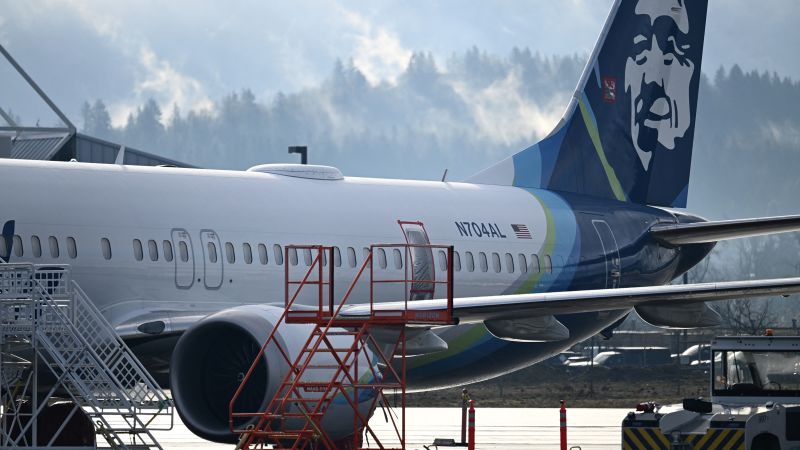
Alaska Airlines announced on Thursday that the loss from grounding its 737 Max 9 jets is estimated to be around $150 million. The Federal Aviation Administration (FAA) ordered a grounding of all Boeing 737 Max planes after an incident in January where a door plug blew off an Alaska Airlines flight, leaving a gaping hole in the side of the plane. Despite this setback, Alaska Air said that inspections on all their 737-9 Max will be completed over the next week and they expect to resume flights as early as Friday. The company also forecast full-year adjusted earnings per share between $3 and $5, including the hit from the grounding.

